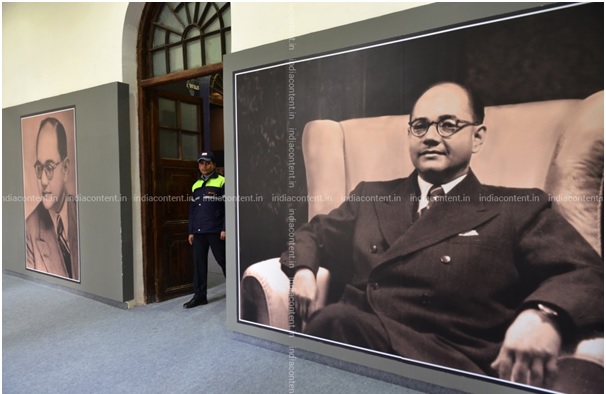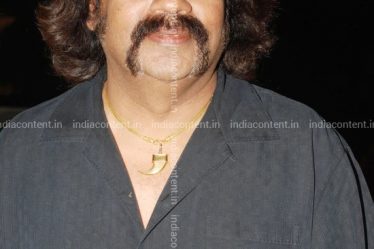
“Give me blood and I will give you freedom!”—Subhas Chandrs Bose

India will always remember the indomitable freedom fighter, Netaji Subhas Chandra Bose for his contribution towards the freedom struggle.
The 123rd birth anniversary of the most influential freedom fighter is celebrated across the world on 23 January every year. ‘
Prime Minister Narendra Modi took to Twitter to pay tribute to the iconic freedom fighter on Netaji’s birth anniversary. He shared two tweets; the first tweet has a video featuring Subhas Chandra Bose with PM’s voice in the background. He says, “Netaji Subhas Chandra Bose played a very important role in the freedom struggle. With Dilli chalo, tum mujhe khoon do main tumhe azadi dunga slogans, Netaji made a place in the heart of Indians.”
The other tweet is a photo of a page from the diary of Netaji’s father Janakinath Bose which he wrote on 23rd January 1897. It reads, “A son was born at midday. “This son became a valorous freedom fighter and thinker who devoted his life towards one great cause- India’s freedom. I refer to Netaji Bose, who we proudly remember on his Jayanti today.”
President Ram Nath Kovind also paid tribute to the courageous freedom fighter. He wrote, “Tributes to Netaji Subhash Chandra Bose on his birth anniversary. He remains one of our most beloved national heroes and an icon of India’s freedom struggle. At his word, millions of Indians joined the freedom movement and gave their all. His courage and patriotism inspire us.”
On Subhas Chandra Bose Jayanti, several programmes across different parts of India are held by central and state governments in honour of the national hero and true liberator ‘Netaji’. Many schools and colleges organise various competitions such as skits, essay writing, debates, etc. Besides, States like Jharkhand observe official holiday on the birth anniversary of Subhas Chandra Bose.

Subhash Chandra Bose Biography
The invincible freedom fighter with extraordinary leadership skills,Subhas Chandra Bose was born on 23 January 1897 in Cuttack, Odisha. He was affectionately known as Netaji.
Subhas Chandra Bose was the President of Indian National Congress from 1938 to 1939. He succeeded in getting rid of British rule in India during World War II with the help of Nazi Germany and Imperial Japan. Netaji was also recognised as the one who founded the Azad Hind Army or Indian National Army with the help of Japan in 1942.
Subhas Chandra Bose faked his death in a plane crash in Taiwan in 1945. Also, many Indians believed that he didn’t die at that time. The Government of West Bengal submitted many false pieces of evidence that Subhas Chandra Bose was killed in a plane crash.
Subhas Chandra Bose was a contemporary of Mahatma Gandhi, sometimes a supporter and at other times a rival. He was majorly known for his militant approach to independence and for his extraordinary efforts to bring in socialist policies.
Netaji was the son of a rich Bengali lawyer. He studied at Presidency College, Calcutta (now Kolkata), from where he was expelled in 1916 for nationalist activities. He also went to Scottish Churches College and graduated in 1919. Afterwards, his parents sent him to the University of Cambridge in England to prepare for the Indian Civil Service. In 1920 he got through the civil service examination, but in April 1921, after hearing about the nationalist mayhem in India, he resigned his candidacy and rushed back to India.
Bose joined the Non-Cooperation movement which was initiated by Mahatma Gandhi, who had made the Indian National Congress a powerful nonviolent organisation. Gandhiji advised Netaji to work under Chitta Ranjan Das, a politician in Bengal. There Netaji became a journalist, a youth educator, and a commandant of the Bengal Congress volunteers. Many activities of Netaji led to his imprisonment in December 1921. In 1924 he was appointed as chief executive officer of the Calcutta Municipal Corporation, with Das as Mayor. Bose was soon after deported to Burma as he was allegedly involved in secret revolutionary movements. Bose was released in 1927, but when he returned he found Bengal Congress affairs in mess after the death of Das. Soon Bose was elected as the president of Bengal Congress. Afterwards, Bose and Jawaharlal Nehru became the two general secretaries of the Indian National Congress. Together they represented the more militant, left-wing group of the party against the more compromising, right-wing Gandhian clique.
Bose was always supported financially and emotionally by his elder brother, Sarat Chandra Bose, a well-off Calcutta lawyer and Indian National Congress politician.

Subhash Chandra Bose Achievements
Netaji Subhas Chandra Bose was posthumously honoured with a Bharat Ratna award, India’s highest civilian award. However, the same was later withdrawn, following a PIL which was filed in the court against the ‘posthumous’ nature of the award.
A statue of Netaji has been erected in front of the West Bengal Legislative Assembly, while his photo noticeably dawns in one of the walls of the Indian Parliament.
There are many books which the great leader had written himself such as Idea of a Nation, Famous Speeches and Letters of Subhas Chandra Bose, On to Delhi: Speeches and Writings, The Indian Struggle 1920-1942 Part I and II, and many more.
Netaji has been a spoof of thought for various writers who have written many books on him such as Beacon Across Asia: Biography of Subhas Chandra Bose, His Majesty’s Opponent, Laid to Rest: The Controversy Over Subhas Chandra Bose’s Death, Mystery of death of Subhash Chandra Bose, Netaji Subhas Chandra Bose and Indian Freedom Struggle, Netaji Subhas Chandra Bose and Indian war of independence, Netaji Subhas Chandra Bose: his great struggle and martyrdom, Patriot, the unique Indian leader Netaji Subhas Chandra Bose: a new personalised biography, Netaji Subhas Chandra Bose: Relevance to Contemporary world, Raj, Secrets, Revolution: A Life of Subhas Chandra Bose, Netaji Subhas Chandra Bose: the great war for political emancipation, Netaji Subhas Chandra Bose, from Kabul to Battle of Imphal, Democracy Indian Style: Subhas Chandra Bose and the Creation of India’s Political Culture, and many more.
Besides, several films have been made on the life of the greatest freedom fighter such as ‘Netaji Subhas Chandra Bose: The Forgotten Hero’, ‘Ami Subhash Bolchi’, ‘Bose: Dead/Alive’, ‘Gumnami’, The Forgotten Army and many more.
Quotes by Subhas Chandra Bose
Here are some of the famous Subhash Chandra Bose quotes that will bring out the patriot in you:
India is calling. Blood is calling to blood. Get up, we have no time to lose. Take up your arms! We shall carve our way through the enemy’s ranks, or if God wills, we shall die a martyr’s death. And in our last sleep we shall kiss the road that will bring our Army to Delhi.
One individual may die for an idea, but that idea will, after his death, incarnate itself in a thousand lives.
Life loses half its interest if there is no struggle-if there are no risks to be taken.
Reality is, after all, too big for our frail understanding to fully comprehend. Nevertheless, we have to build our life on the theory which contains the maximum truth.
We cannot sit still because we cannot, or do not, know the Absolute Truth.
I have no doubt in my mind that our chief national problems relating to the eradication of poverty, illiteracy and disease and the scientific production and distribution can be tackled only along socialistic lines.
Subhas Chandra Bose Images on India Content
The India Content website has a good stock of images related to Subhas Chandra Bose. The high -quality pictures on the website are available in three sizes-small, medium and large.
You can purchase various other content images from the https://www.indiacontent.in

